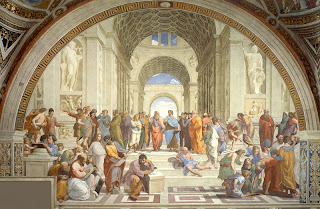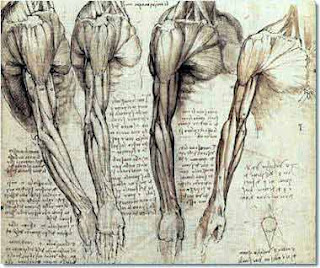“I know no personal cause to spurn at him, but for the general good.”(2.2 Lines 11-12) Brutus is afraid that if Caesar lives and becomes king, he will become a tyrant, and force all of Rome to live as slaves under his rule. But if he kills Caesar, he isn’t sure how the people will react to it. Brutus is at crossroads, and must make the difficult decision of what’s more important to him. He loves both his friend Caesar, but he also loves the Roman republic. He must decide what to do before it’s to late, or his life as a free man may come to an end. Brutus’s patriotism to the Roman Republic and his love for honor motivates him to join the conspirators against Caesar.
Brutus loves the Roman Republic, and this is one of the reasons why he joins the conspirators. Brutus is motivated in this way because he feels the people aren’t thinking properly. They are so happy to have someone lead them, they aren’t noticing how dangerous it would be to have Caesar as their king. He tries to tell this to the people while at Caesar’s funeral, hoping they will notice their mistakes. “Had you rather Caesar were living, and die all slaves, than that Caesar were dead, to live all free men?” (3.2 Lines 21-23) This quotation shows his thinking, and how much he cares about the Roman Republic and the people of Rome. It makes the people see his point of view, and how glad they should be that Caesar is dead. His motivation is shown through wanting to protect the people, and continue living as a free man. This motivator causes Brutus to act very determined, as he wants to protect both the Roman Republic and the people. Brutus is so determined to protect the Roman Republic, that he is even willing to kill himself, and proves this to the people, when talking to them at Caesar’s funeral. “As I slew my best lover for the good of Rome, I have the same dagger for myself, when it shall please my country to need my death.” (3.2 Lines 41-43) Brutus is saying that just as he killed his best friend for the good of Rome, he will kill himself too, if it will be for the good of Rome. This shows how loyal and patriotic Brutus is towards the Roman Republic, and living as a free man. But Brutus isn’t just motivated by his patriotism; he is also motivated by his love for honor.
Honor is what Brutus lives for, and he makes sure he bases every decision off of whether it will be good for Rome, or not. He is motivated in this way because he wants to be a true honorable citizen of Rome. He will do anything for his country, as he loves honor more than death. This he tells Cassius early in the play, when Cassius is first trying to convince Brutus to join the conspirators. “If it be aught toward the general good, set honor in one eye, and death i’th’other, and I will look on both indifferently.” (1.2 Lines 84-86) Brutus is telling Cassius that if what Cassius wants him to do is for the general good, he will look at both indifferently, as the cause is for the people, and not himself. This proves that Brutus is motivated by his honor, and will do anything for the people of Rome. This motivator causes Brutus to act very thoughtful, as he won’t do anything if he isn’t sure it’s for the good of Rome. In the end, even Antony claims Brutus was an honorable man, even if they were enemies. “This was the noblest roman of them all. … He joined them only out of loyalty to the people and for the common good. His life was noble.” (5.5 Lines 71-73) This shows how even Brutus’s enemies notice how Brutus only did what he did for the good of Rome, and not for himself. This proves how honor motivated Brutus, as he died fighting for his country, and not himself. Unfortunately, sometimes having honor and patriotism motivating you, you can be easily manipulative, and make some bad decisions.
Brutus had a hard decision to make, and chose the one that matched his motivators the best. Honor and patriotism were what he lived for, and he showed this through his actions and behaviors. He was determined and loyal, which helped him try and reach his goal of saving Rom from both a tyrant, and becoming destroyed. Unfortunately, I believe his goal was only partially met, but it was still a noble goal. Brutus wanted to save Rome from Caesar, and he did, but Caesar’s death led to great destruction and war. This caused the deaths of many people, something Brutus didn’t want. Even though he tried to be honorable and patriotic, he also ended up being easily manipulated. He was convinced that killing Caesar was for the good of Rome, and was the honorable thing to do. Brutus viewed it this way, and since honor and patriotism are his motivators, he agreed. This was his mistake, as if he had taken a little more time to think up other ideas, the war may not have happened. But even though war and destruction did happen, his goal was still noble. He did it for the good of Rome, and not for himself. Unfortunately, things just didn’t happen the way he had planned. But in the end, Brutus died a noble man, fighting for his country.






